Intel
-
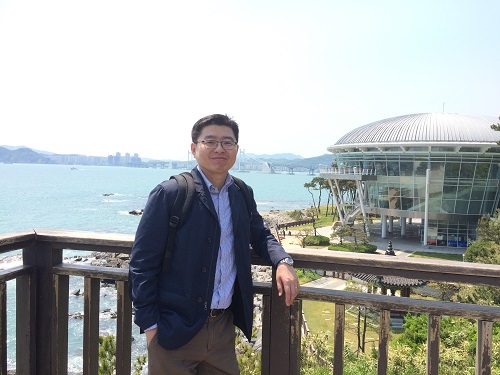 Professor Shin-Hyun Kim Receives the Young Scientist Award
Professor Shin-Hyun Kim from the Department of Chemical and Biomolecular Engineering received the Young Scientist Award from the Korean Academy of Science and Technology.
The Young Scientist Award is presented to a promising young Korean scientist under the age of 40 who shows significant potential, passion, and remarkable achievement.
Professor Kim was lauded for his research of intelligent soft materials. By applying his research, he developed a capsule sensor material that can not only be used for sensors, but also for displays, color aesthetics, anti-counterfeit technology, residual drug detection, and more.
The award ceremony took place on December 14 at the Gwacheon National Science Museum.
The Korean minister of Science and ICT delivered words of encouragement, reminding everyone that “the driving force behind creative performance of scientists is the provision of continuous support.” He added, “Researchers of Korea deserve greater public attention and support.”
(END)
2019.12.21 View 9295
Professor Shin-Hyun Kim Receives the Young Scientist Award
Professor Shin-Hyun Kim from the Department of Chemical and Biomolecular Engineering received the Young Scientist Award from the Korean Academy of Science and Technology.
The Young Scientist Award is presented to a promising young Korean scientist under the age of 40 who shows significant potential, passion, and remarkable achievement.
Professor Kim was lauded for his research of intelligent soft materials. By applying his research, he developed a capsule sensor material that can not only be used for sensors, but also for displays, color aesthetics, anti-counterfeit technology, residual drug detection, and more.
The award ceremony took place on December 14 at the Gwacheon National Science Museum.
The Korean minister of Science and ICT delivered words of encouragement, reminding everyone that “the driving force behind creative performance of scientists is the provision of continuous support.” He added, “Researchers of Korea deserve greater public attention and support.”
(END)
2019.12.21 View 9295 -
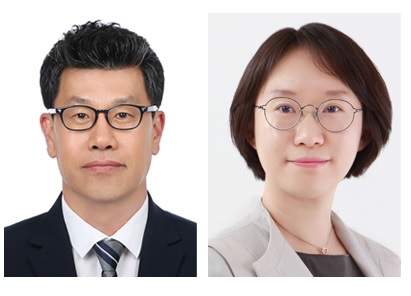 Two Professors Receive Awards from the Korea Robotics Society
< Professor Jee-Hwan Ryu and Professor Ayoung Kim >
The Korea Robotics Society (KROS) conferred awards onto two KAIST professors from the Department of Civil and Environmental Engineering in recognition of their achievements and contributions to the development of the robotics industry in 2019. Professor Jee-Hwan Ryu has been actively engaged in researching the field of teleoperation, and this led him to win the KROS Robotics Innovation (KRI) Award. The KRI Award was newly established in 2019 by the KROS, in order to encourage researchers who have made innovative achievements in robotics. Professor Ryu shared the honor of being the first winner of this award with Professor Jaeheung Park of Seoul National University. Professor Ayoung Kim, from the same department, received the Young Investigator Award presented to emerging robitics researchers under 40 years of age. (END)
2019.12.19 View 12428
Two Professors Receive Awards from the Korea Robotics Society
< Professor Jee-Hwan Ryu and Professor Ayoung Kim >
The Korea Robotics Society (KROS) conferred awards onto two KAIST professors from the Department of Civil and Environmental Engineering in recognition of their achievements and contributions to the development of the robotics industry in 2019. Professor Jee-Hwan Ryu has been actively engaged in researching the field of teleoperation, and this led him to win the KROS Robotics Innovation (KRI) Award. The KRI Award was newly established in 2019 by the KROS, in order to encourage researchers who have made innovative achievements in robotics. Professor Ryu shared the honor of being the first winner of this award with Professor Jaeheung Park of Seoul National University. Professor Ayoung Kim, from the same department, received the Young Investigator Award presented to emerging robitics researchers under 40 years of age. (END)
2019.12.19 View 12428 -
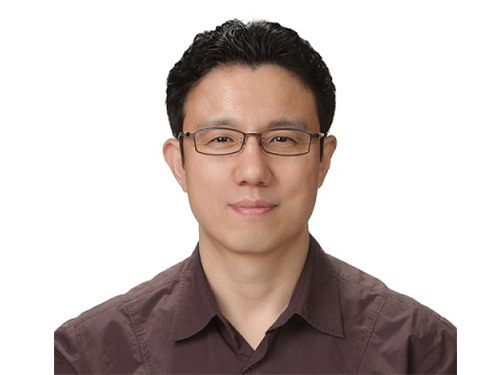 New IEEE Fellow, Professor Jong Chul Ye
Professor Jong Chul Ye from the Department of Bio and Brain Engineering was named a new fellow of the Institute of Electrical and Electronics Engineers (IEEE). IEEE announced this on December 1 in recognition of Professor Ye’s contributions to the development of signal processing and artificial intelligence (AI) technology in the field of biomedical imaging.
As the world’s largest society in the electrical and electronics field, IEEE names the top 0.1% of their members as fellows based on their research achievements.Professor Ye has published more than 100 research papers in world-leading journals in the biomedical imaging field, including those affiliated with IEEE.
He also gave a keynote talk at the yearly conference of the International Society for Magnetic Resonance Imaging (ISMRM) on medical AI technology. In addition, Professor Ye has been appointed to serve as the next chair of the Computational Imaging Technical Committee of the IEEE Signal Processing Society, and the chair of the IEEE Symposium on Biomedical Imaging (ISBI) 2020 to be held in April in Iowa, USA.
Professor Ye said, “The importance of AI technology is developing in the biomedical imaging field. I feel proud that my contributions have been internationally recognized and allowed me to be named an IEEE fellow.”
2019.12.18 View 11742
New IEEE Fellow, Professor Jong Chul Ye
Professor Jong Chul Ye from the Department of Bio and Brain Engineering was named a new fellow of the Institute of Electrical and Electronics Engineers (IEEE). IEEE announced this on December 1 in recognition of Professor Ye’s contributions to the development of signal processing and artificial intelligence (AI) technology in the field of biomedical imaging.
As the world’s largest society in the electrical and electronics field, IEEE names the top 0.1% of their members as fellows based on their research achievements.Professor Ye has published more than 100 research papers in world-leading journals in the biomedical imaging field, including those affiliated with IEEE.
He also gave a keynote talk at the yearly conference of the International Society for Magnetic Resonance Imaging (ISMRM) on medical AI technology. In addition, Professor Ye has been appointed to serve as the next chair of the Computational Imaging Technical Committee of the IEEE Signal Processing Society, and the chair of the IEEE Symposium on Biomedical Imaging (ISBI) 2020 to be held in April in Iowa, USA.
Professor Ye said, “The importance of AI technology is developing in the biomedical imaging field. I feel proud that my contributions have been internationally recognized and allowed me to be named an IEEE fellow.”
2019.12.18 View 11742 -
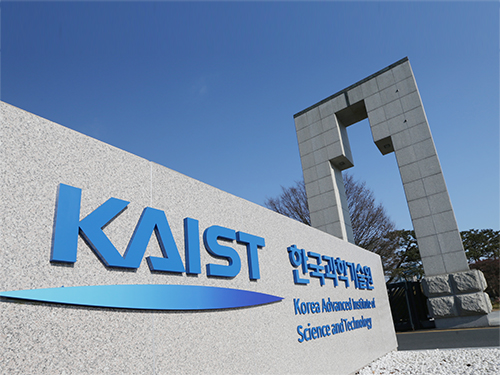 KAIST Awarded the IPBC R&D Institution Team of the Year
KAIST was awarded the R&D Institution Team of the Year during the annual IPBC (Intellectual Property Business Congress) Asia 2019 held in Tokyo October 28-30. IPBC is a conference dedicated to IP value creation strategies hosted by IAM Media, a world’s leading IP business media platform.
IPBC Asia 2019 recognized the institutions and businesses that employed innovative IP strategies and management to produce the greatest IP value in 11 categories covering automotive, electronics, healthcare and biotechnology, internet and software, R&D institutions, semiconductors, industrials, mobile and telecommunications, Asia IP deals, Asia teams, and Asia individuals. This year, KAIST was recognized as one of the most active patentees in the Asia-Pacific region by significantly increasing its IP value through licensing and tech transfers.
Associate Vice President Kyung Cheol Choi of the Office of University-Industry Cooperation remarked, “We are so delighted to prove the strong research capacity of KAIST. This will help us accomplish our vision of being a leading university that creates global impact.”
2019.12.04 View 9306
KAIST Awarded the IPBC R&D Institution Team of the Year
KAIST was awarded the R&D Institution Team of the Year during the annual IPBC (Intellectual Property Business Congress) Asia 2019 held in Tokyo October 28-30. IPBC is a conference dedicated to IP value creation strategies hosted by IAM Media, a world’s leading IP business media platform.
IPBC Asia 2019 recognized the institutions and businesses that employed innovative IP strategies and management to produce the greatest IP value in 11 categories covering automotive, electronics, healthcare and biotechnology, internet and software, R&D institutions, semiconductors, industrials, mobile and telecommunications, Asia IP deals, Asia teams, and Asia individuals. This year, KAIST was recognized as one of the most active patentees in the Asia-Pacific region by significantly increasing its IP value through licensing and tech transfers.
Associate Vice President Kyung Cheol Choi of the Office of University-Industry Cooperation remarked, “We are so delighted to prove the strong research capacity of KAIST. This will help us accomplish our vision of being a leading university that creates global impact.”
2019.12.04 View 9306 -
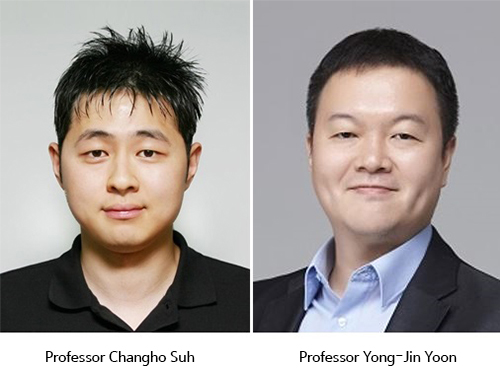 KAIST and Google Jointly Develop AI Curricula
KAIST selected the two professors who will develop AI curriculum under the auspices of the KAIST-Google Partnership for AI Education and Research. The Graduate School of AI announced the two authors among the 20 applicants who will develop the curriculum next year. They will be provided 7,500 USD per subject.
Professor Changho Suh from the School of Electrical Engineering and Professor Yong-Jin Yoon from the Department of Mechanical Engineering will use Google technology such as TensorFlow, Google Cloud, and Android to create the curriculum.
Professor Suh’s “TensorFlow for Information Theory and Convex Optimization “will be used for curriculum in the graduate courses and Professor Yoon’s “AI Convergence Project Based Learning (PBL)” will be used for online courses. Professor Yoon’s course will explore and define problems by utilizing AI and experiencing the process of developing products that use AI through design thinking, which involves product design, production, and verification. Professor Suh’s course will discus“information theory and convergence,” which uses basic sciences and engineering as well as AI, machine learning, and deep learning.
2019.12.04 View 16486
KAIST and Google Jointly Develop AI Curricula
KAIST selected the two professors who will develop AI curriculum under the auspices of the KAIST-Google Partnership for AI Education and Research. The Graduate School of AI announced the two authors among the 20 applicants who will develop the curriculum next year. They will be provided 7,500 USD per subject.
Professor Changho Suh from the School of Electrical Engineering and Professor Yong-Jin Yoon from the Department of Mechanical Engineering will use Google technology such as TensorFlow, Google Cloud, and Android to create the curriculum.
Professor Suh’s “TensorFlow for Information Theory and Convex Optimization “will be used for curriculum in the graduate courses and Professor Yoon’s “AI Convergence Project Based Learning (PBL)” will be used for online courses. Professor Yoon’s course will explore and define problems by utilizing AI and experiencing the process of developing products that use AI through design thinking, which involves product design, production, and verification. Professor Suh’s course will discus“information theory and convergence,” which uses basic sciences and engineering as well as AI, machine learning, and deep learning.
2019.12.04 View 16486 -
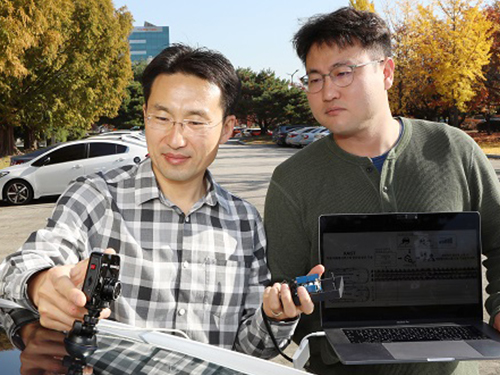 AI to Determine When to Intervene with Your Driving
(Professor Uichin Lee (left) and PhD candidate Auk Kim)
Can your AI agent judge when to talk to you while you are driving? According to a KAIST research team, their in-vehicle conservation service technology will judge when it is appropriate to contact you to ensure your safety.
Professor Uichin Lee from the Department of Industrial and Systems Engineering at KAIST and his research team have developed AI technology that automatically detects safe moments for AI agents to provide conversation services to drivers.
Their research focuses on solving the potential problems of distraction created by in-vehicle conversation services. If an AI agent talks to a driver at an inopportune moment, such as while making a turn, a car accident will be more likely to occur.
In-vehicle conversation services need to be convenient as well as safe. However, the cognitive burden of multitasking negatively influences the quality of the service. Users tend to be more distracted during certain traffic conditions. To address this long-standing challenge of the in-vehicle conversation services, the team introduced a composite cognitive model that considers both safe driving and auditory-verbal service performance and used a machine-learning model for all collected data.
The combination of these individual measures is able to determine the appropriate moments for conversation and most appropriate types of conversational services. For instance, in the case of delivering simple-context information, such as a weather forecast, driver safety alone would be the most appropriate consideration. Meanwhile, when delivering information that requires a driver response, such as a “Yes” or “No,” the combination of driver safety and auditory-verbal performance should be considered.
The research team developed a prototype of an in-vehicle conversation service based on a navigation app that can be used in real driving environments. The app was also connected to the vehicle to collect in-vehicle OBD-II/CAN data, such as the steering wheel angle and brake pedal position, and mobility and environmental data such as the distance between successive cars and traffic flow.
Using pseudo-conversation services, the research team collected a real-world driving dataset consisting of 1,388 interactions and sensor data from 29 drivers who interacted with AI conversational agents. Machine learning analysis based on the dataset demonstrated that the opportune moments for driver interruption could be correctly inferred with 87% accuracy.
The safety enhancement technology developed by the team is expected to minimize driver distractions caused by in-vehicle conversation services. This technology can be directly applied to current in-vehicle systems that provide conversation services. It can also be extended and applied to the real-time detection of driver distraction problems caused by the use of a smartphone while driving.
Professor Lee said, “In the near future, cars will proactively deliver various in-vehicle conversation services. This technology will certainly help vehicles interact with their drivers safely as it can fairly accurately determine when to provide conversation services using only basic sensor data generated by cars.”
The researchers presented their findings at the ACM International Joint Conference on Pervasive and Ubiquitous Computing (Ubicomp’19) in London, UK. This research was supported in part by Hyundai NGV and by the Next-Generation Information Computing Development Program through the National Research Foundation of Korea (NRF) funded by the Ministry of Science and ICT.
(Figure: Visual description of safe enhancement technology for in-vehicle conversation services)
2019.11.13 View 19811
AI to Determine When to Intervene with Your Driving
(Professor Uichin Lee (left) and PhD candidate Auk Kim)
Can your AI agent judge when to talk to you while you are driving? According to a KAIST research team, their in-vehicle conservation service technology will judge when it is appropriate to contact you to ensure your safety.
Professor Uichin Lee from the Department of Industrial and Systems Engineering at KAIST and his research team have developed AI technology that automatically detects safe moments for AI agents to provide conversation services to drivers.
Their research focuses on solving the potential problems of distraction created by in-vehicle conversation services. If an AI agent talks to a driver at an inopportune moment, such as while making a turn, a car accident will be more likely to occur.
In-vehicle conversation services need to be convenient as well as safe. However, the cognitive burden of multitasking negatively influences the quality of the service. Users tend to be more distracted during certain traffic conditions. To address this long-standing challenge of the in-vehicle conversation services, the team introduced a composite cognitive model that considers both safe driving and auditory-verbal service performance and used a machine-learning model for all collected data.
The combination of these individual measures is able to determine the appropriate moments for conversation and most appropriate types of conversational services. For instance, in the case of delivering simple-context information, such as a weather forecast, driver safety alone would be the most appropriate consideration. Meanwhile, when delivering information that requires a driver response, such as a “Yes” or “No,” the combination of driver safety and auditory-verbal performance should be considered.
The research team developed a prototype of an in-vehicle conversation service based on a navigation app that can be used in real driving environments. The app was also connected to the vehicle to collect in-vehicle OBD-II/CAN data, such as the steering wheel angle and brake pedal position, and mobility and environmental data such as the distance between successive cars and traffic flow.
Using pseudo-conversation services, the research team collected a real-world driving dataset consisting of 1,388 interactions and sensor data from 29 drivers who interacted with AI conversational agents. Machine learning analysis based on the dataset demonstrated that the opportune moments for driver interruption could be correctly inferred with 87% accuracy.
The safety enhancement technology developed by the team is expected to minimize driver distractions caused by in-vehicle conversation services. This technology can be directly applied to current in-vehicle systems that provide conversation services. It can also be extended and applied to the real-time detection of driver distraction problems caused by the use of a smartphone while driving.
Professor Lee said, “In the near future, cars will proactively deliver various in-vehicle conversation services. This technology will certainly help vehicles interact with their drivers safely as it can fairly accurately determine when to provide conversation services using only basic sensor data generated by cars.”
The researchers presented their findings at the ACM International Joint Conference on Pervasive and Ubiquitous Computing (Ubicomp’19) in London, UK. This research was supported in part by Hyundai NGV and by the Next-Generation Information Computing Development Program through the National Research Foundation of Korea (NRF) funded by the Ministry of Science and ICT.
(Figure: Visual description of safe enhancement technology for in-vehicle conversation services)
2019.11.13 View 19811 -
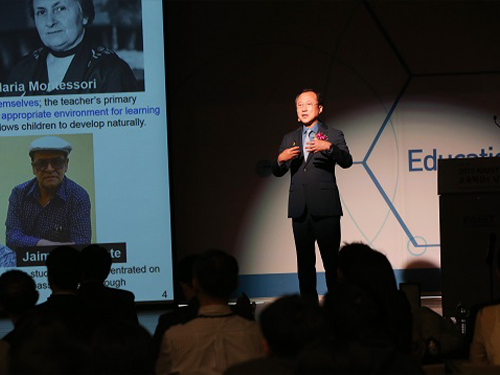 Education Innovation Day Reaffirms Rewarding of Excellence
Professors Tae-Eog Lee and Il-Chul Moon from the Department of Industrial & Systems Engineering received the Linkgenesis Best Teacher Award and the Soo-Young Lee Teaching Innovation Award on May 10. They were each awarded with 10 million KRW in prize money during the Education Innovation Day ceremony held at the Chung Kun-mo conference hall.
The award was endowed by KAIST Alumni Scholarship Chairman Hyung-Kyu Lim and KAIST Foundation Chairman Soo-Young Lee to support the innovation initiative and acknowledge faculty members who made significant contributions to educational innovation and benefited the general public though their innovations.
“KAIST’s vision for excellence and commitment to innovation is a game changer. Educational innovation is one of five pillars of Vision 2031, and it is our priority to foster critical and creative thinking students,” said President Sung-Chul Shin at the ceremony. All the awardees made presentation on their innovative projects and shared their ideas on better pedagogical methodology for next generation.
Professor Lee, dean of the KAIST Academy and the head of the Center for Excellence in Learning & Teaching was recognized for his contribution to enhancing educational quality through innovative learning and teaching methodology development. He has set up an Education 3.0 Initiative, an online education platform for flipped learning at KAIST.
Professor Moon also upgraded the online education platform to the 4.0 version and extended KAIST’s massive online courses through KOOC framework. This open platform offers more than 62 courses, with more than 170 thousand users registered since 2014.
Professor Song-Hong Park from the Department of Bio and Brain Engineering and Professor Jae-Woo Lee from the Department of Chemical and Biomolecular Engineering also won the Excellence Award.
2019.05.10 View 10243
Education Innovation Day Reaffirms Rewarding of Excellence
Professors Tae-Eog Lee and Il-Chul Moon from the Department of Industrial & Systems Engineering received the Linkgenesis Best Teacher Award and the Soo-Young Lee Teaching Innovation Award on May 10. They were each awarded with 10 million KRW in prize money during the Education Innovation Day ceremony held at the Chung Kun-mo conference hall.
The award was endowed by KAIST Alumni Scholarship Chairman Hyung-Kyu Lim and KAIST Foundation Chairman Soo-Young Lee to support the innovation initiative and acknowledge faculty members who made significant contributions to educational innovation and benefited the general public though their innovations.
“KAIST’s vision for excellence and commitment to innovation is a game changer. Educational innovation is one of five pillars of Vision 2031, and it is our priority to foster critical and creative thinking students,” said President Sung-Chul Shin at the ceremony. All the awardees made presentation on their innovative projects and shared their ideas on better pedagogical methodology for next generation.
Professor Lee, dean of the KAIST Academy and the head of the Center for Excellence in Learning & Teaching was recognized for his contribution to enhancing educational quality through innovative learning and teaching methodology development. He has set up an Education 3.0 Initiative, an online education platform for flipped learning at KAIST.
Professor Moon also upgraded the online education platform to the 4.0 version and extended KAIST’s massive online courses through KOOC framework. This open platform offers more than 62 courses, with more than 170 thousand users registered since 2014.
Professor Song-Hong Park from the Department of Bio and Brain Engineering and Professor Jae-Woo Lee from the Department of Chemical and Biomolecular Engineering also won the Excellence Award.
2019.05.10 View 10243 -
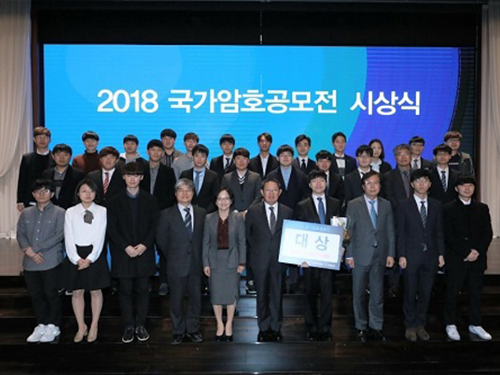 KAIST Shows Strong Performance in Crypto Contest Korea 2018
(Awardees at the ceremony for Crypto Contest Korea 2018)
A paper titled “Indifferentiability of Truncated Random Permutations” by PhD candidate Wonseok Choi and MS candidate Byeonghak Lee (under Professor Jooyoung Lee) from the KAIST Graduate School of Information Security (GSIS) won first place in Crypto Contest Korea 2018. Byeonghak Lee became a repeat winner since his paper titled “Tweakable Block Ciphers Secure Beyond the Birthday Bound in the Ideal Cipher Model” also received an award at Crypto Contest Korea 2017.
The contest, hosted by the Korea Cryptography Forum, the Korea Institute of Information Security & Cryptology, and the National Security Research Institute and sponsored by the National Intelligence Service, was held for promoting cryptography in Korea. The total prize money is fifty million won with ten million won going to the first place winners.
The contest was divided into three divisions: paper, problem solving, and idea. Among the three divisions, first place came from the paper division only.
Besides first place, KAIST students showed outstanding performance in the contest. PhD candidate Seongkwang Kim received participation prize while he also received special prizes with MS candidate Yeongmin Lee. The hacking club GoN (under Professor Sang Kil Cha), comprised of undergraduate students from the GSIS was awarded the grand prize in the division of problem solving.
The award ceremony was held during the Future Crypto Workshop 2018 on November 15. The awards ceremony for Crypto Expert Korea 2018 were also held there, and PhD candidate Ji-Eun Lee from the School of Computing and Byeonghak Lee received awards, the grand prize and runner-up prize respectively.
2018.11.27 View 9969
KAIST Shows Strong Performance in Crypto Contest Korea 2018
(Awardees at the ceremony for Crypto Contest Korea 2018)
A paper titled “Indifferentiability of Truncated Random Permutations” by PhD candidate Wonseok Choi and MS candidate Byeonghak Lee (under Professor Jooyoung Lee) from the KAIST Graduate School of Information Security (GSIS) won first place in Crypto Contest Korea 2018. Byeonghak Lee became a repeat winner since his paper titled “Tweakable Block Ciphers Secure Beyond the Birthday Bound in the Ideal Cipher Model” also received an award at Crypto Contest Korea 2017.
The contest, hosted by the Korea Cryptography Forum, the Korea Institute of Information Security & Cryptology, and the National Security Research Institute and sponsored by the National Intelligence Service, was held for promoting cryptography in Korea. The total prize money is fifty million won with ten million won going to the first place winners.
The contest was divided into three divisions: paper, problem solving, and idea. Among the three divisions, first place came from the paper division only.
Besides first place, KAIST students showed outstanding performance in the contest. PhD candidate Seongkwang Kim received participation prize while he also received special prizes with MS candidate Yeongmin Lee. The hacking club GoN (under Professor Sang Kil Cha), comprised of undergraduate students from the GSIS was awarded the grand prize in the division of problem solving.
The award ceremony was held during the Future Crypto Workshop 2018 on November 15. The awards ceremony for Crypto Expert Korea 2018 were also held there, and PhD candidate Ji-Eun Lee from the School of Computing and Byeonghak Lee received awards, the grand prize and runner-up prize respectively.
2018.11.27 View 9969 -
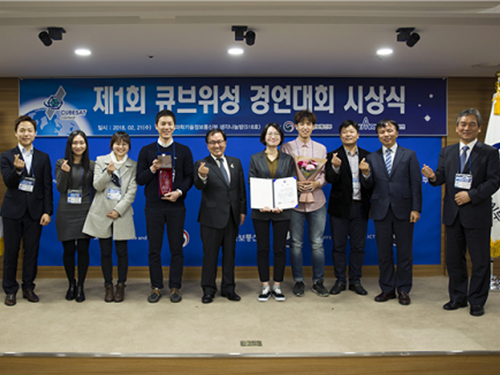 KAIST, First to Win the Cube Satellite Competition
Professor Hyochoong Bang from the Department of Aerospace Engineering and his team received the Minister of Science and ICT Award at the 1st Cube Satellite Competition.
The team actually participated in the competition in 2012, but it took several years for the awarding ceremony since it took years for the satellites to be designed, produced, and launched.
The KAIST team successfully developed a cube satellite, named ‘Little Intelligent Nanosatellite of KAIST (LINK)’ and completed its launch in April 2017.
LINK (size: 20cmx10cmx10cm, weight: 2kg) mounted mass spectrometry and Langmuir probe for Earth observation. The Langmuir probe was developed by Professor Kyoung Wook Min from the Department of Physics, KAIST.
Yeerang Lim, a PhD student from the Department of Aerospace Engineering said, “I still remember the feeling that I had on the day when LINK launched into orbit and sent back signals. I hope that space exploration is not something far away but attainable for us in near future.”
2018.02.22 View 13107
KAIST, First to Win the Cube Satellite Competition
Professor Hyochoong Bang from the Department of Aerospace Engineering and his team received the Minister of Science and ICT Award at the 1st Cube Satellite Competition.
The team actually participated in the competition in 2012, but it took several years for the awarding ceremony since it took years for the satellites to be designed, produced, and launched.
The KAIST team successfully developed a cube satellite, named ‘Little Intelligent Nanosatellite of KAIST (LINK)’ and completed its launch in April 2017.
LINK (size: 20cmx10cmx10cm, weight: 2kg) mounted mass spectrometry and Langmuir probe for Earth observation. The Langmuir probe was developed by Professor Kyoung Wook Min from the Department of Physics, KAIST.
Yeerang Lim, a PhD student from the Department of Aerospace Engineering said, “I still remember the feeling that I had on the day when LINK launched into orbit and sent back signals. I hope that space exploration is not something far away but attainable for us in near future.”
2018.02.22 View 13107 -
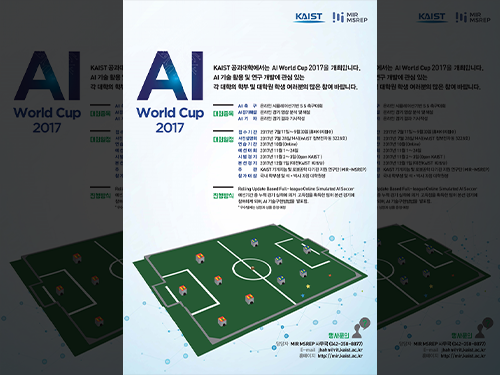 KAIST to Host the 2017 AI World Cup in November
KAIST, the birthplace of the Robot World Cup in 1996, now presents a new technology matchup, the AI World Cup this November, which will be held at KAIST. The event is being organized by the Machine Intelligence and Robotics Multi-Sponsored Research and Education Platform (MIR-MSREP) of KAIST. The online, simulated AI soccer game, based on rolling updates, will be a draw for avid online gamers and tech-savvy university students from around the nation.
The tournament is comprised of three events: ▲A 5 on 5 AI soccer match to be played after self-learning using AI technology in an online simulation environment ▲Commentary in which online soccer videos are analyzed and commented on, and ▲Game reporters who will write articles on online soccer event results.
The participants will undergo a month-long online practice period in October and compete in preliminary matches from November 1 through 24. The top teams that scored the highest accumulated points will compete in the finals on December 1. In the finals, each team’s AI technology implementation method will be evaluated to select the final winning team. To ensure a successful event, KAIST will host a briefing session for participants on July 28.
Technological prowess and early exposure to AI accumulated at KAIST led to the launching of this tournament. Professor Jong-Hwan Kim, the chair of the Organizing Committee of the AI World Cup, hosted the first ever Robot World Cup back in 1996. His concept has now evolved into the emerging technology of AI and the members of the Organizing Committee encompass the professors from the various departments of electrical engineering, computing, industrial and systems engineering, aerospace engineering, civil and environmental engineering, and the graduate schools of Green Transportation, Cultural Technology, and Science and Technology Policy.
In particular, ongoing convergence research initiatives incorporating AI into a wide arrays of disciplines such as bio, nano, and IT, played a crucial role for making this AI World Cup happen. Professor Kim said, “The winner of this year’s competition will be awarded a certificate and a small gift. In 2018, we aim to expand the event to an international scale by allowing international teams.”
Any undergraduate or graduate student in Korea can apply to participate in the ‘AI World Cup 2017’. KAIST will host a public trial event during the ‘Open KAIST’ event period to be held November 2-3 to help participating students understand the event better. ‘Open KAIST’ allows the general public to personally visit and experience what goes on in engineering departments and laboratories on the KAIST main campus. It is hosted by the College of Engineering every two years and is the largest event hosted by KAIST.
To participate in the ‘AI World Cup 2017,’ teams consisting of Korean undergraduates or graduate students can fill out application forms and submit them by September 30 on http://mir.kaist.ac.kr .
2017.07.14 View 13270
KAIST to Host the 2017 AI World Cup in November
KAIST, the birthplace of the Robot World Cup in 1996, now presents a new technology matchup, the AI World Cup this November, which will be held at KAIST. The event is being organized by the Machine Intelligence and Robotics Multi-Sponsored Research and Education Platform (MIR-MSREP) of KAIST. The online, simulated AI soccer game, based on rolling updates, will be a draw for avid online gamers and tech-savvy university students from around the nation.
The tournament is comprised of three events: ▲A 5 on 5 AI soccer match to be played after self-learning using AI technology in an online simulation environment ▲Commentary in which online soccer videos are analyzed and commented on, and ▲Game reporters who will write articles on online soccer event results.
The participants will undergo a month-long online practice period in October and compete in preliminary matches from November 1 through 24. The top teams that scored the highest accumulated points will compete in the finals on December 1. In the finals, each team’s AI technology implementation method will be evaluated to select the final winning team. To ensure a successful event, KAIST will host a briefing session for participants on July 28.
Technological prowess and early exposure to AI accumulated at KAIST led to the launching of this tournament. Professor Jong-Hwan Kim, the chair of the Organizing Committee of the AI World Cup, hosted the first ever Robot World Cup back in 1996. His concept has now evolved into the emerging technology of AI and the members of the Organizing Committee encompass the professors from the various departments of electrical engineering, computing, industrial and systems engineering, aerospace engineering, civil and environmental engineering, and the graduate schools of Green Transportation, Cultural Technology, and Science and Technology Policy.
In particular, ongoing convergence research initiatives incorporating AI into a wide arrays of disciplines such as bio, nano, and IT, played a crucial role for making this AI World Cup happen. Professor Kim said, “The winner of this year’s competition will be awarded a certificate and a small gift. In 2018, we aim to expand the event to an international scale by allowing international teams.”
Any undergraduate or graduate student in Korea can apply to participate in the ‘AI World Cup 2017’. KAIST will host a public trial event during the ‘Open KAIST’ event period to be held November 2-3 to help participating students understand the event better. ‘Open KAIST’ allows the general public to personally visit and experience what goes on in engineering departments and laboratories on the KAIST main campus. It is hosted by the College of Engineering every two years and is the largest event hosted by KAIST.
To participate in the ‘AI World Cup 2017,’ teams consisting of Korean undergraduates or graduate students can fill out application forms and submit them by September 30 on http://mir.kaist.ac.kr .
2017.07.14 View 13270 -
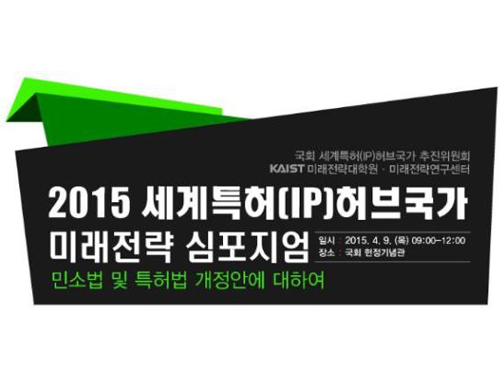 KAIST Hosts a Symposium on IPR
KAIST’s Graduate School of Future Strategy (http://futures.kaist.ac.kr) hosted a symposium entitled “Future Strategies to Grow Korea as the Hub for the World’s Intellectual Property Rights (IPRs)” under the theme of “Patent Laws and a Revised Bill for the Code of Civil Procedures” in the National Assembly’s Memorial Hall on April 9, 2015.
Experts who attended the symposium included Professor James Dator, Director of the Hawaii Research Center for Futures Studies, Sang-Wook Han, a lawyer and Vice President of Korea Intellectual Property Protection Association (KIPRA), and Min Seo, a former Chairman of Civil Law Revision Commission of the Ministry of Justice, Korea.
The event consisted of special lectures, patent law presentations, a revised bill for the code of civil procedures in patent law, and a general discussion forum. Professor Dator, the keynote speaker, addressed the future of intellectual property. San-Wook Han (KIPRA) talked about new and effective changes in Korean patent law such as the compensation against IPR violations and the reduction of legal burden of proof in IPR disputes. Min Seo from the Ministry of Justice moderated a panel of eight members, which offered an in-depth discussion on the revised bill.
A ceremony for “The Third Future Strategy Award” was also held at the symposium. Yeon-Soo Park, former Administrator of the National Emergency Management Agency, received the award for his work on the Northeast Asian International Business Center City Project which enabled the construction of Incheon International Airport and Songdo International City.
2015.04.09 View 11923
KAIST Hosts a Symposium on IPR
KAIST’s Graduate School of Future Strategy (http://futures.kaist.ac.kr) hosted a symposium entitled “Future Strategies to Grow Korea as the Hub for the World’s Intellectual Property Rights (IPRs)” under the theme of “Patent Laws and a Revised Bill for the Code of Civil Procedures” in the National Assembly’s Memorial Hall on April 9, 2015.
Experts who attended the symposium included Professor James Dator, Director of the Hawaii Research Center for Futures Studies, Sang-Wook Han, a lawyer and Vice President of Korea Intellectual Property Protection Association (KIPRA), and Min Seo, a former Chairman of Civil Law Revision Commission of the Ministry of Justice, Korea.
The event consisted of special lectures, patent law presentations, a revised bill for the code of civil procedures in patent law, and a general discussion forum. Professor Dator, the keynote speaker, addressed the future of intellectual property. San-Wook Han (KIPRA) talked about new and effective changes in Korean patent law such as the compensation against IPR violations and the reduction of legal burden of proof in IPR disputes. Min Seo from the Ministry of Justice moderated a panel of eight members, which offered an in-depth discussion on the revised bill.
A ceremony for “The Third Future Strategy Award” was also held at the symposium. Yeon-Soo Park, former Administrator of the National Emergency Management Agency, received the award for his work on the Northeast Asian International Business Center City Project which enabled the construction of Incheon International Airport and Songdo International City.
2015.04.09 View 11923 -
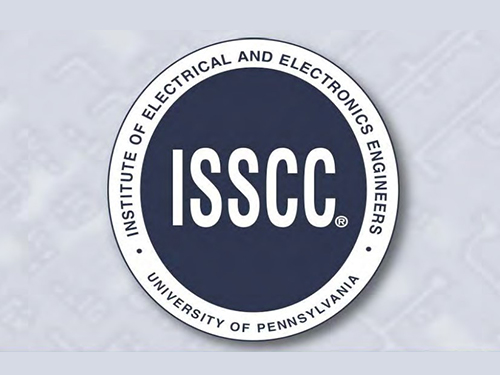 KAIST Presents the Largest Number of Research Papers at the 2015 ISSCC
KAIST will present the largest number of research papers at the 2015 IEEE International Solid-State Circuits Conference (ISSCC), a leading global forum held every year to share professional knowledge and advancements in solid-state circuits and systems-on-a-chip. The Institute of Electrical and Electronics Engineers (IEEE) Solid-State Circuits Society sponsors the conference.
This year, the conference accepted 13 research papers from KAIST, ranking first among the participating organizations. Samsung Electronics Co., Ltd. took second (9 papers) place, and Intel Corporation and IMEC were in third place with 8 papers, respectively. A total of 610 papers were submitted, and reviewers selected only 206 papers for presentation at the next year's conference.
Since 2011, KAIST has been the number one institution among universities with the largest number of papers presented at the conference.
The Associate Chair of ISSCC Program Committee Chair, Professor Hoi-Jun Yoo of the Department of Electrical Engineering at KAIST, said, “Korea started the semiconductor industry in the 1970s, and since then, KAIST has been the center of research and development for the industry. With the establishment of IC (integrated circuit) Design Education Center in 1995, KAIST has contributed tremendously to the education and research of semiconductor production, nationally and globally. As shown from the record of presenting research results at the ISSCC, KAIST will continue to collaborate closely with the industry and lead the field.”
The 2015 IEEE ISSCC will take place on February 22-26, 2015 in San Francisco, CA, in the US.
2014.12.08 View 8882
KAIST Presents the Largest Number of Research Papers at the 2015 ISSCC
KAIST will present the largest number of research papers at the 2015 IEEE International Solid-State Circuits Conference (ISSCC), a leading global forum held every year to share professional knowledge and advancements in solid-state circuits and systems-on-a-chip. The Institute of Electrical and Electronics Engineers (IEEE) Solid-State Circuits Society sponsors the conference.
This year, the conference accepted 13 research papers from KAIST, ranking first among the participating organizations. Samsung Electronics Co., Ltd. took second (9 papers) place, and Intel Corporation and IMEC were in third place with 8 papers, respectively. A total of 610 papers were submitted, and reviewers selected only 206 papers for presentation at the next year's conference.
Since 2011, KAIST has been the number one institution among universities with the largest number of papers presented at the conference.
The Associate Chair of ISSCC Program Committee Chair, Professor Hoi-Jun Yoo of the Department of Electrical Engineering at KAIST, said, “Korea started the semiconductor industry in the 1970s, and since then, KAIST has been the center of research and development for the industry. With the establishment of IC (integrated circuit) Design Education Center in 1995, KAIST has contributed tremendously to the education and research of semiconductor production, nationally and globally. As shown from the record of presenting research results at the ISSCC, KAIST will continue to collaborate closely with the industry and lead the field.”
The 2015 IEEE ISSCC will take place on February 22-26, 2015 in San Francisco, CA, in the US.
2014.12.08 View 8882